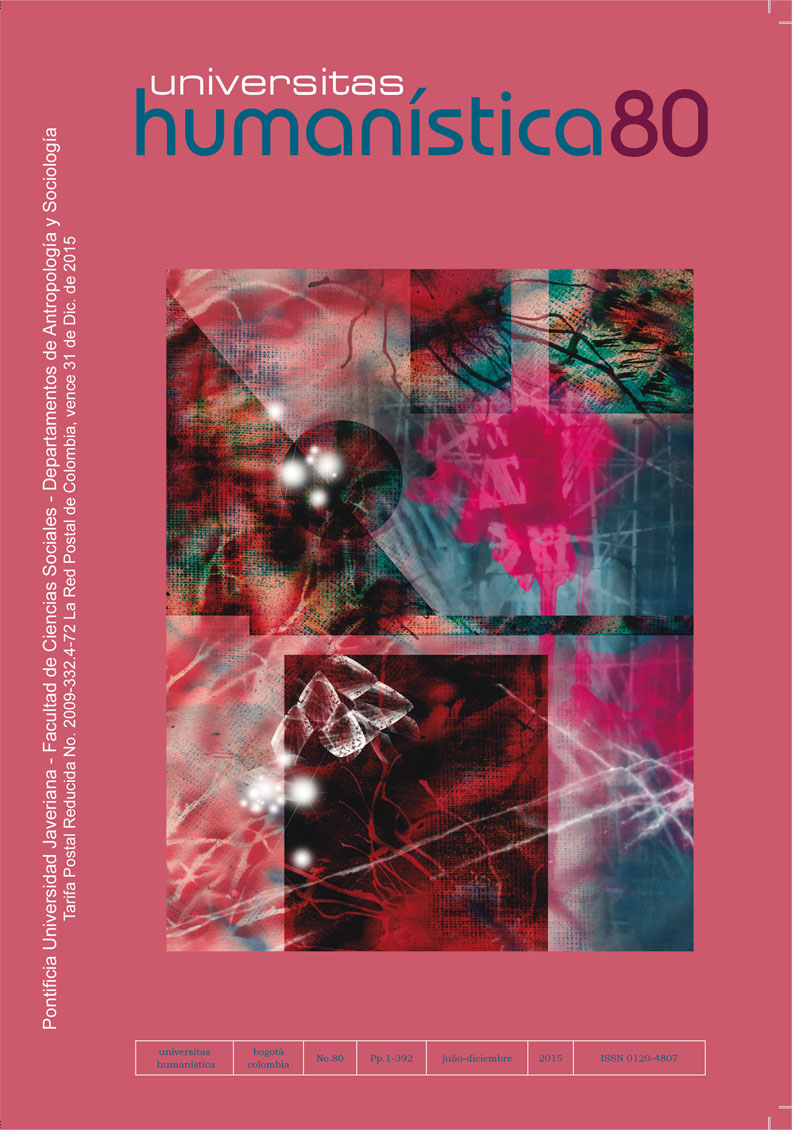Resumen
En este artículo exploramos prácticas de fronterización, entendidas como las diversas maneras enque colectivos sociales marcan un adentro y un afuera, en correlato con la diferenciación nosotros/otros. Buscamos identificar cómo operan esas prácticas en la dialéctica Estado-minorías étnicas,central en la configuración histórica de las sociedades latinoamericanas. Aunque como constructossociales esas fronteras emerjan como divisorias nítidas, las abordamos como membranas porosasy selectivamente cambiantes, abiertas a reconexiones. Para sugerir algunos desplazamientosanalíticos relevantes y necesarios que la época actual propicia, organizamos el texto en cuatro pasosimbricados pero distinguibles. Abordamos primero las dis/continuidades en la conceptualización dela frontera en el pensamiento social. Enunciamos luego cómo las fronteras políticas gravitan sobreprácticas de fronterización resultantes de políticas de marcación de diferencias y de reconocimiento.Examinamos después lo que entendemos como una pluralización de las fronteras espaciales,categoriales y sociales. Abordamos, por último, los desafíos sociales y disciplinares que apareja elreconocimiento de fronteras epistémicas.

La revista Universitas Humanística se encuentra registrada bajo la licencia Creative Commons Reconocimiento 4.0 Internacional. Por lo tanto, esta obra se puede reproducir, distribuir y comunicar públicamente en formato digital, siempre que se reconozca el nombre de los autores y a la Pontificia Universidad Javeriana. Se permite citar, adaptar, transformar, autoarchivar, republicar y crear a partir del material, para cualquier finalidad (incluso comercial), siempre que se reconozca adecuadamente la autoría, se proporcione un enlace a la obra original y se indique si se han realizado cambios. La Pontificia Universidad Javeriana no retiene los derechos sobre las obras publicadas y los contenidos son responsabilidad exclusiva de los autores, quienes conservan sus derechos morales, intelectuales, de privacidad y publicidad.
El aval sobre la intervención de la obra (revisión, corrección de estilo, traducción, diagramación) y su posterior divulgación se otorga mediante una licencia de uso y no a través de una cesión de derechos, lo que representa que la revista y la Pontificia Universidad Javeriana se eximen de cualquier responsabilidad que se pueda derivar de una mala práctica ética por parte de los autores. En consecuencia de la protección brindada por la licencia de uso, la revista no se encuentra en la obligación de publicar retractaciones o modificar la información ya publicada, a no ser que la errata surja del proceso de gestión editorial. La publicación de contenidos en esta revista no representa regalías para los contribuyentes.


